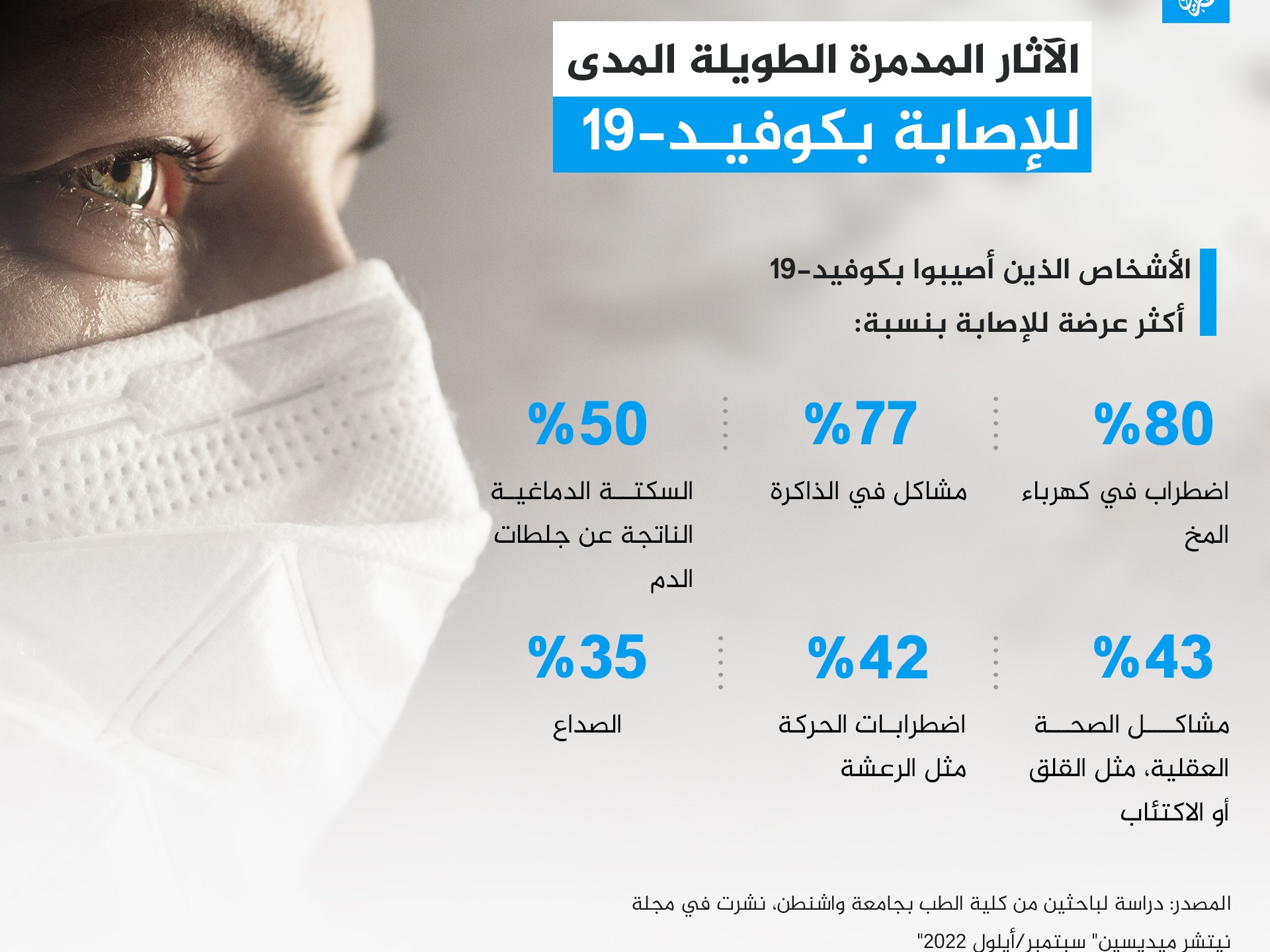The vast majority (90%) of people who have experienced long-term COVID-19 infections have noticed that their symptoms of the virus have slowly improved in two years, while others have either noticed a rapid improvement in their condition or a continuation of symptoms, according to a study on Friday.
Dr. Phet Thi Tran, an epidemiologist at the University of Paris City and the University Hospital of Ile-de-France, conducted the study by continuously following 2197,19 patients from the Combear group who had long had COVID-<>. The results of his study were published in the International Journal of Infectious Diseases.
COVID-19 infection is considered prolonged when a patient suffers from one or two symptoms for three months after contracting the virus, including fatigue, cough, shortness of breath, intermittent fever, loss of taste or smell, difficulty concentrating, depression, or the symptom lasts for two months.
In a statement, the University Hospital of Ile-de-France stated that COVID-19 is not a single "disease", but a complex syndrome caused by multiple mechanisms that are often intertwined, explaining the complex and often heterogeneous clinical picture of the patient.
The study noted that nearly 90% of those who have had a long COVID-19 illness reported that they still face symptoms a year after their infection.
Slow improvement
The researchers identified 3 trends in patients, with the vast majority (91%) seeing slow improvement in their symptoms over time (with a 25% reduction in the number of symptoms reported within two years of their initial infection).
4% of patients experienced rapid improvement in their symptoms (with complete disappearance of symptoms two years after infection).
Compared to other patients, these people were younger and had no previous functional diseases (chronic fatigue, fibromyalgia...).
These patients experienced more pains in the neck, back and lower back, as well as gastrointestinal symptoms, during the most severe phase of their COVID-19 infection.
On the other hand, about 5% of patients experienced severe symptoms that persisted over time. Overall, these patients were older, smoked and had previously had an autoimmune disease. They more frequently experienced symptoms such as tachycardia, bradycardia or palpitations, hot flashes and sweating, and intolerance to cold and heat during the most severe phase of their COVID-19 infection.
The University Hospital of Ile-de-France indicated that the results of the study will make it possible for patients to be better informed of the evolution of their prolonged COVID-19 cases, as well as to better assess the needs of the health system to meet the challenge of these infections.

